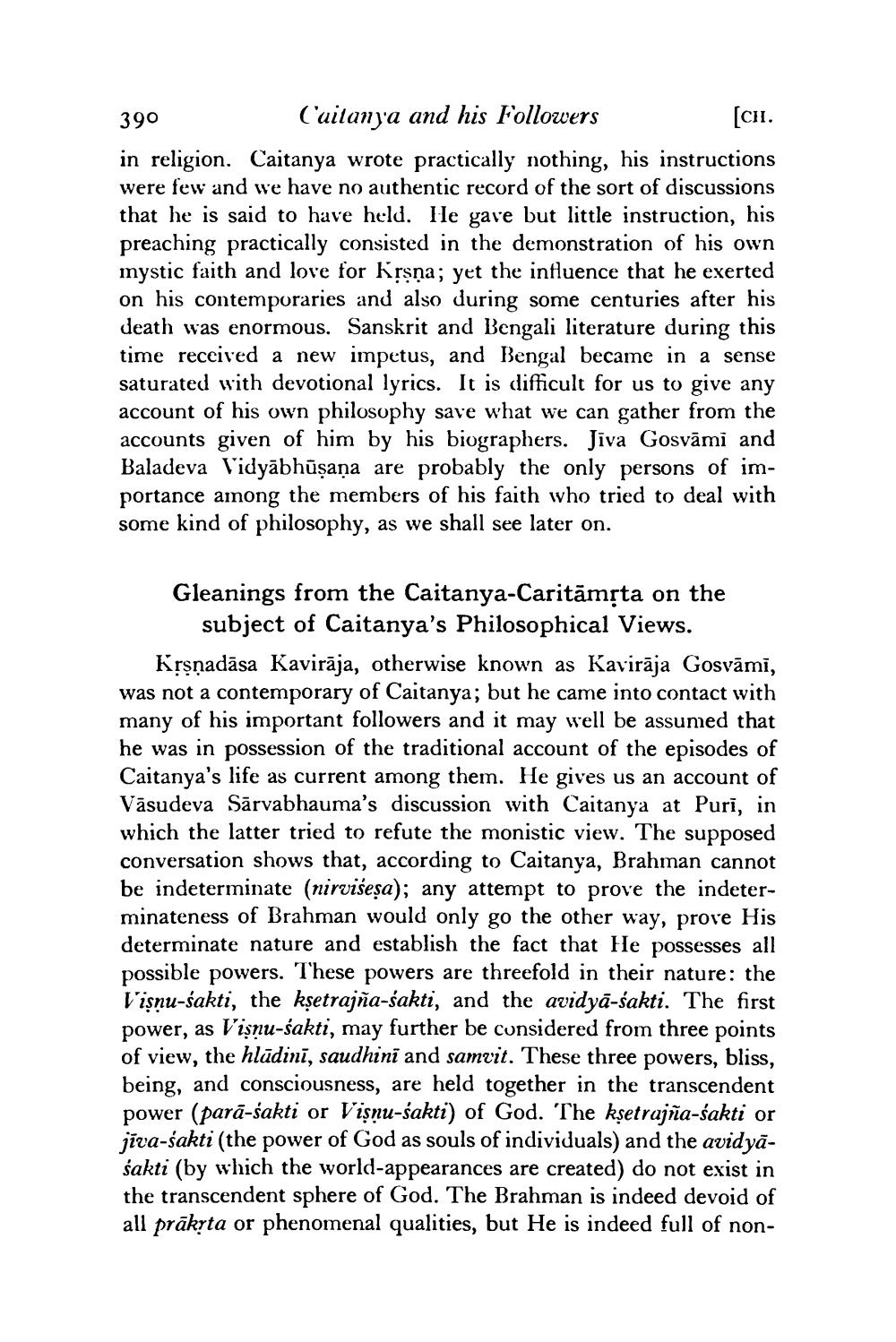________________
390 Caitanya and his Followers
[CH. in religion. Caitanya wrote practically nothing, his instructions were few and we have no authentic record of the sort of discussions that he is said to have held. He gave but little instruction, his preaching practically consisted in the demonstration of his own mystic faith and love for Krsna; yet the influence that he exerted on his contemporaries and also during some centuries after his death was enormous. Sanskrit and Bengali literature during this time received a new impetus, and Bengal became in a sense saturated with devotional lyrics. It is difficult for us to give any account of his own philosophy save what we can gather from the accounts given of him by his biographers. Jiva Gosvāmi and Baladeva Vidyābhūsaņa are probably the only persons of importance among the members of his faith who tried to deal with some kind of philosophy, as we shall see later on.
Gleanings from the Caitanya-Caritāmsta on the
subject of Caitanya's Philosophical Views. Krsnadāsa Kavirāja, otherwise known as Kavirāja Gosvāmī, was not a contemporary of Caitanya; but he came into contact with many of his important followers and it may well be assumed that he was in possession of the traditional account of the episodes of Caitanya's life as current among them. He gives us an account of Vāsudeva Sārvabhauma's discussion with Caitanya at Purī, in which the latter tried to refute the monistic view. The supposed conversation shows that, according to Caitanya, Brahman cannot be indeterminate (nirvišeșa); any attempt to prove the indeterminateness of Brahman would only go the other way, prove His determinate nature and establish the fact that He possesses all possible powers. These powers are threefold in their nature: the L'isnu-sakti, the kşetrajña-sakti, and the avidyā-sakti. The first power, as V’işnu-sakti, may further be considered from three points of view, the hlūdini, saudhini and samvit. These three powers, bliss, being, and consciousness, are held together in the transcendent power (parā-sakti or Vişnu-sakti) of God. The kşetrajña-sakti or jīva-sakti (the power of God as souls of individuals) and the avidyāsakti (by which the world-appearances are created) do not exist in the transcendent sphere of God. The Brahman is indeed devoid of all prākyta or phenomenal qualities, but He is indeed full of non




